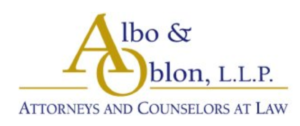The Legal Justification of DUI Checkpoints
In many states, police set up driving under the influence (DUI) checkpoints to check for impaired or drunk motorists. Typically, these checkpoints are established on busy roads and highways during holidays when motorists are notorious for abusing alcohol and drugs. These checkpoints are roadblocks where officers randomly stop vehicles and interview the motorists for signs of intoxication. DUI checkpoints have come under a lot of criticism for going against the fourth amendment rights. Here is a look at the legal justification of DUI checkpoints.
A U.S. Supreme Court Ruling on DUI Checkpoints
In a 1990 case, the U.S. Supreme Court handed down a ruling that legitimized DUI checkpoints. The ruling held that being stopped at a DUI checkpoint does not violate a citizen’s rights against unreasonable searches and seizures as provided by the Fourth Amendment. This ruling has caused many to question the definition of an unreasonable search.
Reasonable and Unreasonable Searches
A reasonable search is one conducted when there is probable cause. For example, when a police searches you after an arrest, it is considered to be a reasonable search because they have probable cause that you have committed an offense. However, because a police officer has no probable cause for stopping you at a checkpoint, this amounts to an unreasonable search. This means that the one exception to the Fourth Amendment’s rule on unreasonable searches and seizures is when it entails DUI checkpoints.
Why Are DUI Checkpoints Constitutional?
Before the infamous Supreme Court ruling on the constitutionality of DUI checkpoints, a Michigan court passed judgment on what constitutes unreasonable seizure. The Supreme Court did not contest their argument and instead stated that this exception of the 4th Amendment was needed for protection. The court argued that this form of unreasonable seizure is necessary in light of the threat that intoxicated drivers pose to the public.
What Grounds Must Be Met for a Dui Checkpoint to Be Valid?
According to the National Highway Safety Transportation Board, for a DUI search and seizure to be legal, the following criteria must be met:
- The checkpoint should be established by the senior authorities of law enforcement agencies and not randomly by the officers in the field.
- Law agencies should apply good judgment when determining where the checkpoints are to be placed and for how long they should last.
- Checkpoints should be mounted at reasonable places such as in areas with high numbers of alcohol related incidents, accidents, and arrests.
- Checkpoints should be set up in a safe manner. This means there should be proper lighting, signals, warning signs, and police vehicles should be easy to spot.
- Motorists should be detained only for the purpose of questioning them and determining whether or not they are impaired.
- The DUI checkpoint operation must be publicized before it is executed.
When is a DUI Checkpoint Illegal?
If you have been stopped at a DUI checkpoint and the following conditions have not been met, you can make a claim against an unlawful search and seizure. Some of the defenses that your lawyer can make for you include:
Wrongful detention: This defense will apply when you are held longer than is necessary to determine whether or not you are sober.
The operation was not public knowledge: This defense applies where the authorities did not post a public notice that they would be executing a DUI checkpoint operation. Your lawyer can claim you never knew about the operation and; therefore, the search and seizure was unconstitutional.
The operation lasted longer than the authorities had announced: This defense can be used if you are stopped and arrested outside the required time frame for the operation.
The checkpoints were unreasonable: If you are stopped at an unreasonable location, your lawyer will argue that the checkpoint was mounted at an area with a low risk of drunken driving accidents, incidents, or arrests.
If you were arrested for a DUI at a checkpoint and you feel your rights were violated, it’s important to contact a criminal defense attorney such as the DUI lawyer Fairfax VA locals trust immediately.
 Thanks to authors at Albo Oblon LLP for their insight into Criminal Defense Law.
Thanks to authors at Albo Oblon LLP for their insight into Criminal Defense Law.



